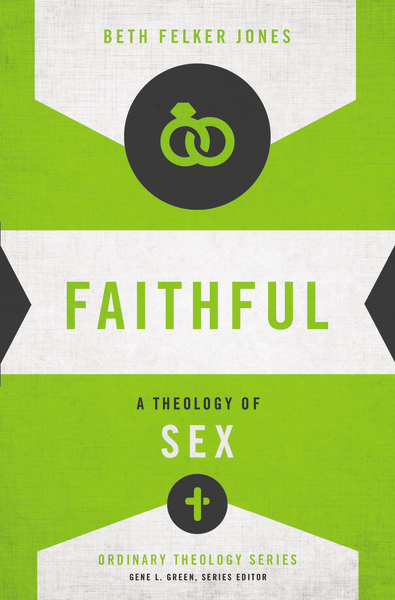One of the great strengths of this little book is its insistence on the integrity and goodness of the single life, a theme which comes to the fore in the fifth chapter. The Christian sexual ethic has always proclaimed two ways of bearing radical public witness to the faithfulness of God: celibate singleness, and exclusive, permanent marriage. Both ways, argues Felker Jones, function as a sign of the kingdom, a repudiation of commodified relationships, sexual slavery and selfishness, and cultural mores that enslave and demean.
Early Christianity was bold enough to imagine that all of us have—in Christ—the freedom to bear witness to who God is. The Christian understanding of sex was dramatic in the ways that it ran against Roman sexual morality. Roman women were not free to not marry. Christian women could choose—even insist on—celibacy. For Christians, women aren’t property or baby makers. We’re witnesses to the life of Jesus Christ in our bodies. Including in the ways we choose to have and not have sex. For Christians, men aren’t lust machines or power mongers. They’re witnesses to the life of Jesus Christ in their bodies, including in the ways they choose to have and not have sex. … In Rome, you were either a slave or you were free. In the kingdom of God, we’re all free. As a witness to this, we value singleness and marriage as two routes, two ways of life, in which the Christian may be truly sexual and truly free. (71-72)
Chapter six addresses consent, an issue fraught with difficulty in the present, and almost impossible, especially for the vulnerable, in an unrestrained, anything-goes culture. Yet, if sex is to be freely given and received, consent is essential. Felker Jones suggests that consent is at the heart of a biblical-Christian sexual ethic, and is in fact, one of the most Christian things about the ways in which Christians have—and don’t have—sex (78). True consent must be freely given and mutual, and for Christians this happens in the marriage ceremony in a very public way: “See this man? (or, see this woman?)—I’m having sex with him tonight” (79).
Although deeply committed to values traditional evangelical Christians will affirm, Felker Jones takes aim in her seventh chapter at a prominent movement in recent evangelicalism: the so-called “purity” movement. Since sex belongs in a context of grace and freedom, bodies must never be made commodities, and marriage and sex must never be made a reward for effort; thus “purity” must never be reduced to a pelagian work of self-effort toward holiness. The economy of grace and the market economy are antithetical (91).
If sex is in any way a sign of God’s grace, it can never be commodified. It can never be wrenched out of the framework of free, mutual, consensual relationship and placed on the market floor. If sex is thus free, then sexual holiness cannot—cannot, cannot—mean having a “valuable” kind of body or preserving that “value” against loss of value. But we’ve failed to be clear about that. Instead, we’ve bought into a mistaken set of ideas about what purity looks like. (83)
The purity paradigm turns physical virginity into a possession. This tendency heightens the sense that purity matters most for females and heightens the unbiblical idea that virginity and purity don’t apply to men. The purity paradigm makes virginity into a thing that one needs to cling to in order to retain value. It tells the graceless lie that we are more valuable spouses for someone if we have this thing. It tells the demonic lie that our market value is what makes us precious to God. (91)
While she is careful to note that “there is much that is healthy, holy and happy about the situation in which both spouses can come to a marriage without sexual experience” (108), she insists that purity, marriage and singleness are about discipleship in the kingdom of God and never about our value as persons.
And so we return to the central point: married or single, the body is one hundred percent for the Lord. Our bodies bear witness, our flesh is for mission, for witness, for giving glory to God. Both faithful marriage and celibate singleness may be ways in which we harness all of our life and pour that life out for God (69). “The sexual orthodoxy of our fallen world wants to create a body that is something to be consumed. Christian sexuality recognizes that the body is meant to be a witness. Sex is a witness to what God does in our lives, a witness to the God who is faithful and keeps promises” (104). The faithful body tells a story of God’s faithfulness. It witnesses to the goodness of embodied life as created by God. It does kingdom work in relationship and service to others. It testifies to the longing and consummation of God’s eschatological future. It witnesses to the fact that we already are “bought with a price.” In Christ we have been made free to be truly and fully human, and so truly and fully sexual—in the ways we do—and don’t—have sex (97).
